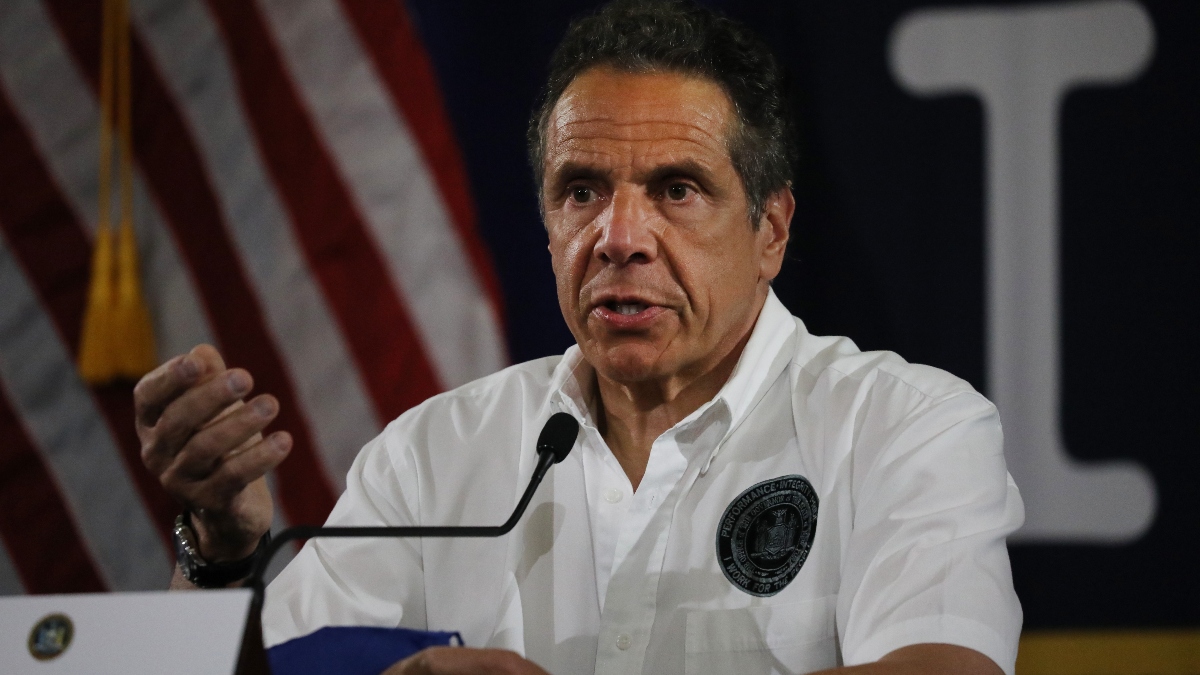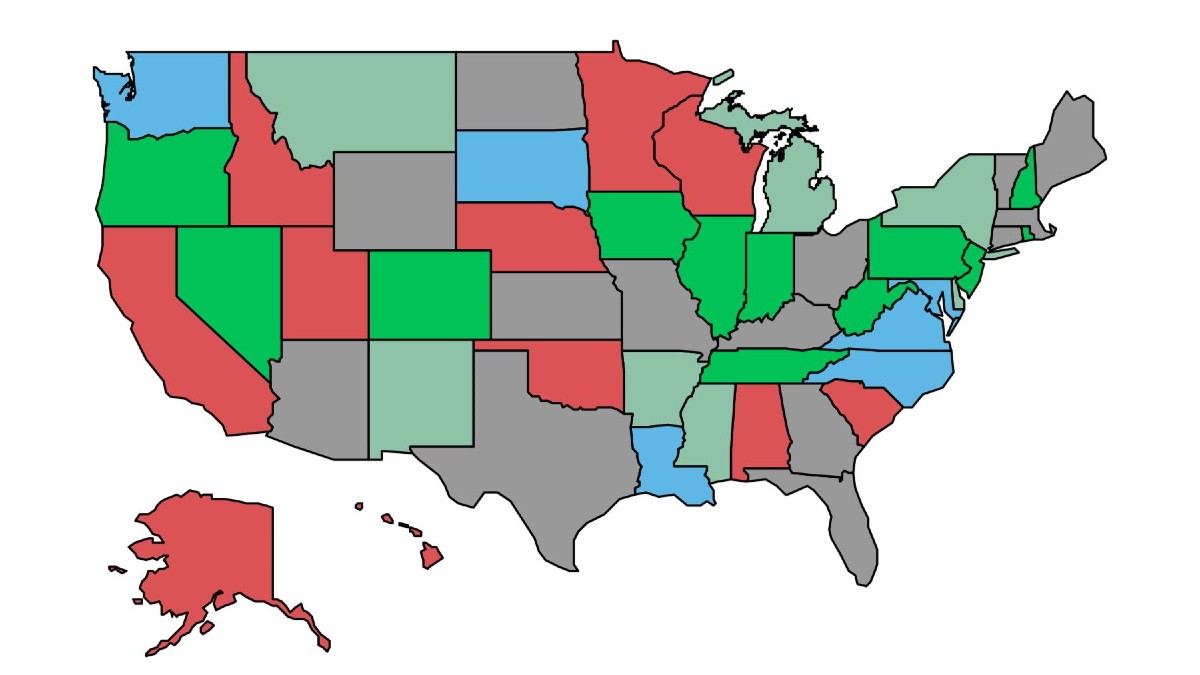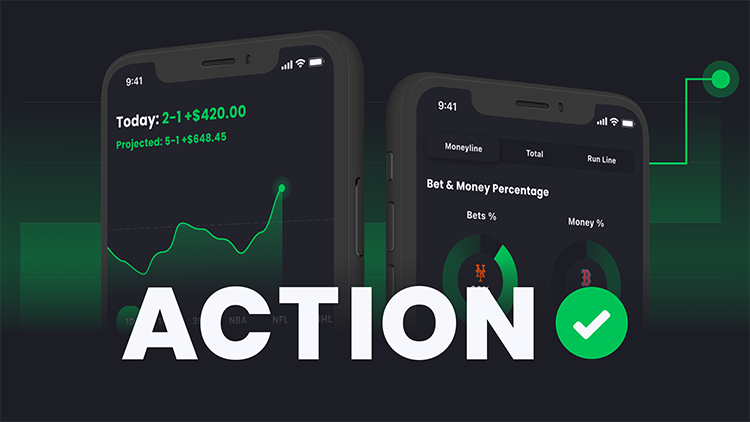
Spencer Platt/Getty Images. Pictured: New York Gov. Andrew Cuomo.
New York Gov. Andrew Cuomo reiterated his support for online sports betting in recent days as one small piece of his state’s efforts to fix a projected $15 billion budget deficit. How New York structures online sports wagering faces two divergent paths and no certain direction where it is headed.
In a tweet over the weekend and again at his State of the State address Monday, Cuomo said online sports betting, along with marijuana legalization and federal aid, would help stave off painful tax increases or spending cuts as the state faces the largest budget deficit in its history. Cuomo didn’t elaborate on his sports betting specifics in what he announced as the first of four speeches addressing the state’s 2021 plans, leaving questions as his sole-source operator plan already faces headwinds in the legislature.
Cuomo’s planned single-provider model would, by his estimation, generate 10 times the revenue of a competitive model favored by sportsbooks, gaming stakeholders and many lawmakers in his own party. Though Cuomo’s plans have raised eyebrows — and outright skepticism — from leading gaming industry analysts, his political influence will create a sizable challenge as it runs into a competing vision for online gaming already under consideration in the legislature.
The April 1 budget deadline looms in the meantime. The solution to these contrasting visions will help determine whether what would be the nation’s largest sports betting market can pass into law this year, or if mobile wagering will remain dormant.
Lone Operator Model Runs Against Multiple Skin Plan
Cuomo shook up the U.S. sports betting industry last week when he publicly supported legal online wagering, after years of dismissing it as a “rounding error” that under his administration’s view was impossible without a voter-backed constitutional amendment. In 2021, facing a massing budget deficit exacerbated by rising health care costs and declining tax revenues from the COVID-19 pandemic, the governor changed his mind.
Hours after his support leaked, he rocked the industry again when he said at his daily press conference he supported a sole-source model.
Cuomo said last week New York sports betting would garner $500 million in annual tax revenues with a sole-source operator compared to $50 million from a competitive market. In an ensuing press release, Cuomo’s administration said it would place sports betting under the joint gaming and lottery commission and only allow bidders for the lone license between existing retail sportsbook partners.
Cuomo’s newfound mobile betting support excited stakeholders initially, but the lone operator model drew swift opposition. Opponents pointed to failures in other lottery-run sports betting markets such as Oregon and Washington D.C., which contrasted with rapid growth in competitive markets such as New Jersey, Pennsylvania and Colorado.
Notably, New Jersey has the highest monthly sports betting handle of any state in part because 20% of that money comes from New Yorkers.
Most gaming industry observers also argued that a multi-operator model is the only way to combat the black market, which is still projected to make up the vast majority of total handle wagered in the U.S. despite rapid legalization in the 2 1/2 years since the Supreme Court struck down the federal wagering ban.
Without top brands like DraftKings, FanDuel, William Hill, BetRivers, BetMGM and a growing number of sportsbook operators that have already invested millions of dollars in promotions and advertising, New York could not hope to capture a sizable portion of the illegal, and untaxed, black market.
Legislators filed multi-operator legislation days after Cuomo announced his sole-provider plans, creating a juxtaposition that could not be resolved by a legislative compromise.
What Comes Next
Cuomo’s first State of the State speech did little to explain his technical visions for a sole-source sports betting operation, though further details are expected when he unveils his budget proposal in the coming days. Once details are revealed, he will then have to bank on his influence as head of the executive branch (and the Democratic party) to advance a proposal that already faces opposition from the legislature’s biggest gaming advocates.
The legislature’s plan, spearheaded by Democratic Assemblymember J. Gary Pretlow and Sen. Joseph Addobbo, would allow the state’s four commercial casinos and three Native American gaming tribes to partner with two online operators apiece, opening the door for as many as 14 legal sportsbooks. Off-track betting facilities and professional sports venues could also host betting kiosks.
Pretlow and Addabbo will look to advance their respective bills as soon as possible, starting in the gaming committees they each chair in their respective chambers. This creates a natural collision course between two contrasting visions when (or if) the Cuomo-backed bill is introduced.
Unlike in other states that considered sports betting legalization where lawmakers could compromise on tax rates or skin counts, there can be no compromise between the two plans; either New York will have multiple online operators, one operator or none.
For online sports betting to pass, which Cuomo said again Monday he wants to see happen, either he will have to back down on his stance or cajole reluctant lawmakers to support his idea. Cuomo’s upcoming budget proposal and potentially his additional State of the State addresses should detail his approach and either reaffirm his single-source operator support or show he’s amenable to lawmakers’ plans.
The decisions will be one of the most consequential for not just New York sports betting but the industry as a whole. Without an agreement on the number of skins, New York loses one more internal tool it has to overcome a record-setting budget deficit. At best a small fraction of the deficit, online sports betting is nevertheless one of the few revenue avenues the state can control in the absence of federal support.
And, without a deal in New York, the U.S. sports betting industry loses what would be its most lucrative market.

